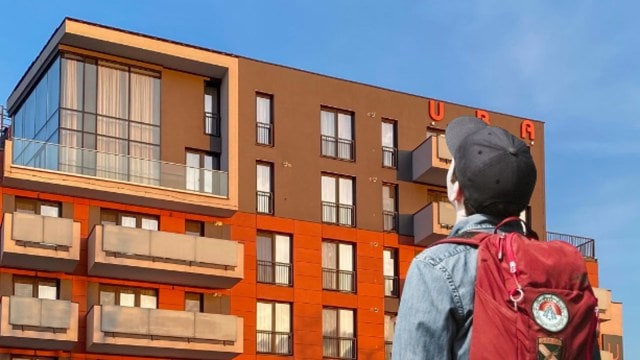
After the onslaught of the Covid-19 pandemic, international students are encountering a myriad of accommodation issues which is also adding an extra layer of complexity to their academic pursuits. This article delves into the multifaceted aspects of this challenge, offering guidance on how students can effectively cope with the evolving landscape of accommodation in the post-Covid era.
-
Addressing accommodation challenges
As international students grapple with accommodation issues in the aftermath of the pandemic, a strategic and proactive approach is paramount. Initiating early communication with university housing services and tapping into the collective wisdom of fellow students can provide valuable insights and potential solutions. Tapping into the collective wisdom of fellow students through forums like the International Student Community on Reddit can offer real-world advice based on experiences. Exploring a diversified range of housing options, including both on-campus and off-campus alternatives, is essential for finding accommodation that aligns with individual preferences and circumstances.
-
On-campus vs off-campus housing choices
On-campus accommodation, while often limited, can offer a unique and immersive experience for international students. Proximity to academic facilities and a built-in support system can foster a sense of community among residents. However, the demand for on-campus housing may exceed availability, requiring students to apply early and explore waitlist options.
When opting for on-campus housing, understanding the application process is crucial. Students should apply well in advance, considering the high demand for these spaces. Additionally, being flexible with accommodation preferences, such as room types or residence halls, can increase the chances of securing on-campus housing. Regularly checking university communication channels and ensuring timely responses during the application process can significantly enhance the likelihood of success.
Off-campus housing expands the scope of choices, from apartments to shared houses, providing students with more flexibility. Yet, this option demands meticulous research to ensure proximity to the university, safety, and adherence to local regulations. Online platforms, local real estate agents, and community boards can be valuable resources in the search for off-campus housing.
Before committing to a lease, visit potential neighbourhoods, assess transportation options and inquire about local amenities. Engaging with the local community through online forums or social media groups can provide valuable insights into the experiences of previous tenants. Understanding local rental regulations and ensuring a clear lease agreement can prevent potential complications down the line.
-
Navigating poor conditions
For those unfortunate enough to find themselves in suboptimal living conditions, swift and assertive action is imperative. Communicating concerns with landlords, documenting issues, and seeking immediate assistance from university support services can be the first steps toward resolution.
Additionally, exploring legal avenues and connecting with local community organisations that specialise in housing concerns can provide additional resources and guidance to navigate challenging situations.
-
Solutions for prospective and current students
For Prospective Students
Thorough research: Before departing for studies abroad, conduct comprehensive research on available accommodation options. Consider factors such as location, safety, and reviews from previous tenants.
Communication with the university: Establish clear communication channels with the university’s housing services. Seek information on available on-campus options, application processes, and potential waitlist scenarios.
Financial preparedness and budgeting: Understanding the financial implications of accommodation is crucial for international students. Beyond rent, consider additional costs such as utilities, internet, and potential maintenance fees. Creating a comprehensive budget helps in managing expenses effectively and ensures financial stability throughout the academic year.
Utilise technology: In the digital age, technology can be a powerful ally for international students. Several housing apps like Nestpick, Amberhomes, Uniplaces etc., cater to the needs of international students, offering a convenient platform to search for accommodation. Embracing technology can streamline the housing search process, making it more efficient and accessible for students, especially those navigating these challenges from abroad.
For Current Students
Regularly review housing policies: Stay informed about the housing policies and regulations, both from the university and local authorities. Periodically reviewing the terms of the lease, understanding eviction procedures, and being aware of tenant rights can empower international students to navigate potential challenges more effectively.
Build a support network: Connect with fellow international students who may have faced similar accommodation challenges. Peer support can offer valuable insights and practical advice on navigating local housing landscapes. Platforms like Roomster, known for facilitating roommate connections, can contribute to building a supportive network.
Utilise university assistance: Leverage the resources provided by the university’s student support services. This includes counselling services, which can assist in coping with the stress associated with housing challenges, and dedicated accommodation assistance programs.
The evolving landscape of post-COVID accommodations for international students demands adaptability and proactive measures. By carefully weighing on-campus and off-campus options, addressing poor living conditions assertively and implementing solutions tailored to both prospective and current students, individuals can navigate the challenges posed by accommodation uncertainties in a foreign country.
This proactive approach ensures a smoother transition into academic life and fosters a positive and supportive environment for international students in the post-COVID era.
